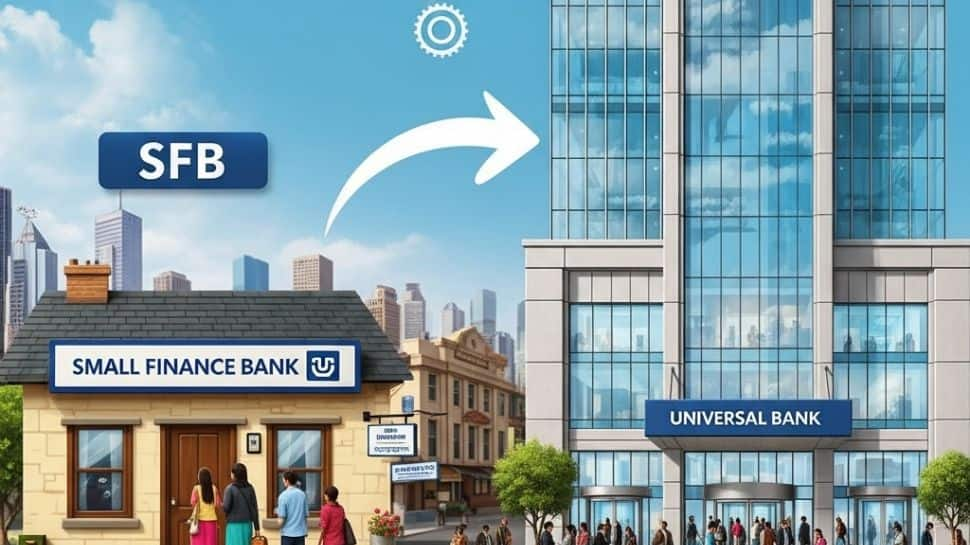Small Finance Banks to Universal Banks: What's the Big Deal & RBI's Conversion Rules?

The Indian banking sector is undergoing exciting changes, with Small Finance Banks (SFBs) eyeing the coveted status of Universal Banks. But what does it really mean for these institutions, and what does the Reserve Bank of India (RBI) require for them to make the leap? Let's break it down, explaining the benefits, the challenges, and the RBI's specific norms.
What is a Universal Banking License and Why Does It Matter?
Essentially, a Universal Banking License grants a bank the freedom to offer a full suite of financial services. Think beyond just accepting deposits and lending to individuals and small businesses – a universal bank can also engage in investment banking, insurance, and other complex financial activities. For SFBs, currently focused on serving the underserved and micro segments, this expansion represents a significant opportunity for growth and profitability.
Here's why the shift is so important:
- Increased Revenue Streams: Diversifying services means more income opportunities.
- Enhanced Growth Potential: Access to larger markets and more sophisticated products.
- Improved Customer Base: Serving a broader range of customers, from retail to corporate.
- Greater Financial Stability: Reduced reliance on a single line of business.
RBI Norms: What SFBs Need to Do to Qualify
The RBI hasn't made this transition easy. Converting from an SFB to a Universal Bank isn't just about wanting to; it requires meeting stringent criteria to ensure financial stability and responsible banking practices. Here's a look at the key requirements:
- Minimum Net Worth: The RBI mandates a substantial minimum net worth, currently set at NZD$2.2 billion (approximately). This demonstrates the bank's financial strength and ability to absorb potential losses.
- Capital Adequacy Ratio (CAR): A robust CAR, typically above 10%, is essential. This ensures the bank has enough capital to cover its risks.
- Asset Quality: SFBs must demonstrate a healthy asset quality, with a low level of non-performing assets (NPAs). Stringent monitoring and proactive risk management are crucial.
- Corporate Governance: Strong corporate governance practices are non-negotiable. This includes a well-defined board structure, independent directors, and robust internal controls.
- Branch Network: A wider branch network, both physical and digital, is expected to cater to a larger customer base.
- Technology and Infrastructure: Significant investment in technology and infrastructure is required to support the expanded range of services.
Challenges and the Road Ahead
The path to universal banking isn't without its hurdles. SFBs face challenges such as raising the necessary capital, improving asset quality, and building the technological capabilities required. Furthermore, navigating the evolving regulatory landscape and increasing competition will be key.
However, the potential rewards are significant. With the right strategy and execution, SFBs can transform themselves into robust and diversified universal banks, playing a vital role in India's economic growth. The RBI’s ongoing review of these norms will be crucial in facilitating a smooth and sustainable transition for these aspiring universal banks.
Stay informed about the latest developments in the Indian banking sector!






